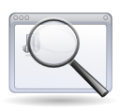MOSEP Module 2
 |
MOSEP ePortfolio Tutorial: Module 2 Reflecting on Learning |
Overview / Introduction - Module 2 Session 1 | Session 2 | Session 3 | Session 4 |
Reflection on the learning processes
In this module you will work with your course tutor to develop the skills and understanding that will enable you to support learners in order to reflect on their learning process. Variety of activities can be used to facilitate student reflection.
There are many definitions of reflection, most however agree that it is an active, conscious process. Reflection is often initiated when the individual practitioner encounters some problematic aspect of practice and attempts to make sense of it. Reflection is an active process of witnessing one’s own experience in order to take a closer look at it, sometimes to direct attention to it briefly, but often to explore it in greater depth. This can be done in the midst of an activity or as an activity in itself. The key to reflection is learning how to take perspective on one’s own actions and experience—in other words, to examine that experience rather than just living it. By developing the ability to explore and be curious about our own experience and actions, we suddenly open up the possibilities of purposeful learning—derived not from books or experts, but from our work and our lives.
The purpose of reflection is to provide for the possibility of learning through experience, whether that is the experience of a meeting, a project, a disaster, a success, a relationship, or any other internal or external event, before, during or after it has occurred.
Teachers can require students to keep journals, encourage students to publicly discuss their service experiences and the learning that ensued, and require students to prepare reports to demonstrate their learning. When constructing the reflection activities teachers should consider the following:
- Reflection activities should involve individual learners and address interactions with peers.
- Students with different learning styles may prefer different types of activities. Teachers/ consultants should select a range of reflective activities to meet the needs of different learners.
- Different types of reflection activities may be appropriate at different stages of the development of the portfolio.
- Reflection activities can involve reading, writing, doing and storytelling.
|
The objectives of this module are that participants will be able to:
|
Outcomes
Having completed this Module participants will be able to:
|
| Activity 1 [15 Minutes]
The tutor should make general presentation on Module 2 including the following points:
|
